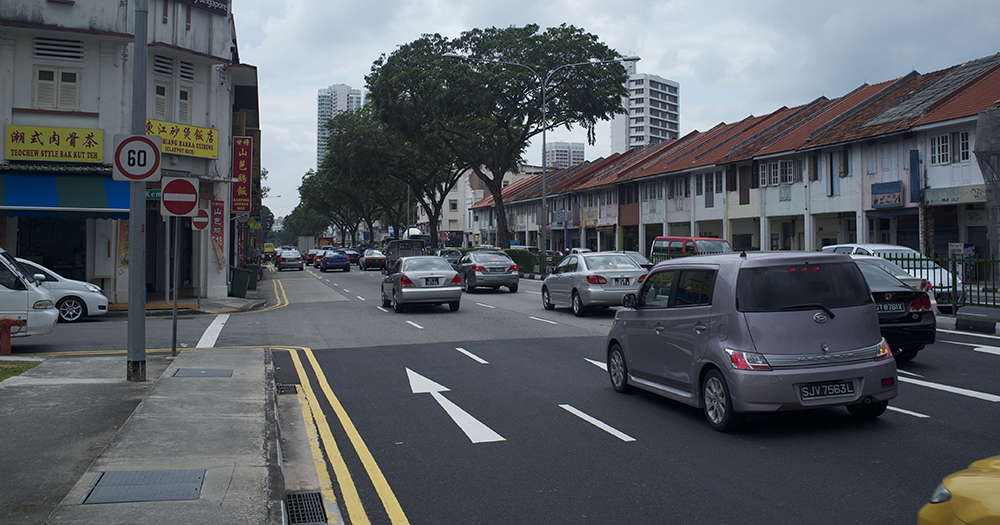Irresponsible drivers in Singapore will face heavier penalties as a result of an amendment to the Road Traffic Act (RTA).
Speaking at the Bill's second reading on July 8, Second Minister for Home Affairs Josephine Teo said irresponsible driving remained a major concern with deadly consequences.
Higher sentencing norms are needed for driving offences that resulted in death or some form of permanent disability as current penalties were "manifestly inadequate", she said.
What strengthened penalties entail?
Streamlining of offences: Either dangerous or careless driving
Under the amendment, irresponsible driving offences will be streamlined into two classes -- dangerous driving and careless driving.
Dangerous driving is considered more serious than careless driving.
Which class an offence will fall into will depend upon the following three factors:
- Whether the manner of driving predictably puts other road users at risk and cause other road users to be unable to react in time,
- Whether the motorist had driven even though he should have known he was not in a condition to drive safely,
- Whether the road situation required the motorist to take extra care but he did not.
Teo added: "When determining the punishment, we will look at the circumstances under which the offence is committed. The threshold for Dangerous Driving is higher than Careless Driving. So, too, the penalties."
Additionally, the level of punishment will be contingent on the extent of harm caused, with death being the most serious, followed by grievous hurt, hurt and endangering of life.
Higher maximum penalties
Here, Teo flagged driving under influence (DUI) as an example, adding that drivers who were either drunk or drug-impaired were one of the biggest contributors to major accidents on the road.
Under the RTA's amendments, drivers who drink and cause death by dangerous driving are now liable for a maximum jail term of 10 years, along with a minimum disqualification period (DQ) of at least 12 years.
Repeat offenders will also face higher penalties, of up to 19 years in jail, and a lifetime disqualification from driving.
As for dangerous driving causing death in general, Teo added that a first-time offender will now be
liable for up to eight years of imprisonment, up from five years at present, along with a minimum disqualification of 10 years, immediate suspension and a forfeiture of vehicle.
Meanwhile, repeat offenders for such cases will be liable for up to 15 years of imprisonment.
Additional levers to remove irresponsible drivers off the road more quickly
On disqualifications, immediate suspensions and forfeiture of vehicles, Teo elaborated that these were additional levers aimed at removing irresponsible drivers off the road quicker, and for a longer period of time.
With regard to immediate suspension, she added that all traffic police personnel would be given the discretion to impose such a measures for all Dangerous Driving offences, as well as Careless Driving offences that cause death or grievous hurt.
Teo clarified that should this measure not be applied, a motorist is able to continue driving until the time of conviction.
As for disqualifications, Teo said this would be applied for offences that caused death or grievous hurt.
In the case of forfeiture of vehicles, it may be applied by the public prosecutor for an expanded group of offences, such as Dangerous Driving causing Death or Grievous Hurt.
Exceptions, however, may be made in cases where the motorist committed the offence while rushing for a medical emergency.
The forfeiture of a vehicle may also not be applied in cases where the offender is not the vehicle owner and had driven the vehicle without the owner’s consent.
Mandatory minimum penalties
Teo said the introduction of mandatory minimum sentences (MMS) will address the concern that the penalties for first-time offenders is still lower than that of other jurisdictions.
The changes include: A first-time offender for dangerous driving causing death will be jailed for at least two years, while repeat offenders will be jailed for at least four years.
What's more, if a case of dangerous driving causing death or grievous hurt also involves DUI, a first-time offender who causes death will be jailed for at least three years, while repeat offenders can face minimum sentences of up to six years in jail.
Teo acknowledged that there may also be cases with exceptional circumstances in which imposing the MMS will result in an unfair punishment.
For such situations, Teo said an amendment introduced to the Bill provided the courts with discretion to deviate from and impose a sentence lower than the MMS terms, should there be special reasons to do so.
Top image from Flickr
If you like what you read, follow us on Facebook, Instagram, Twitter and Telegram to get the latest updates.
